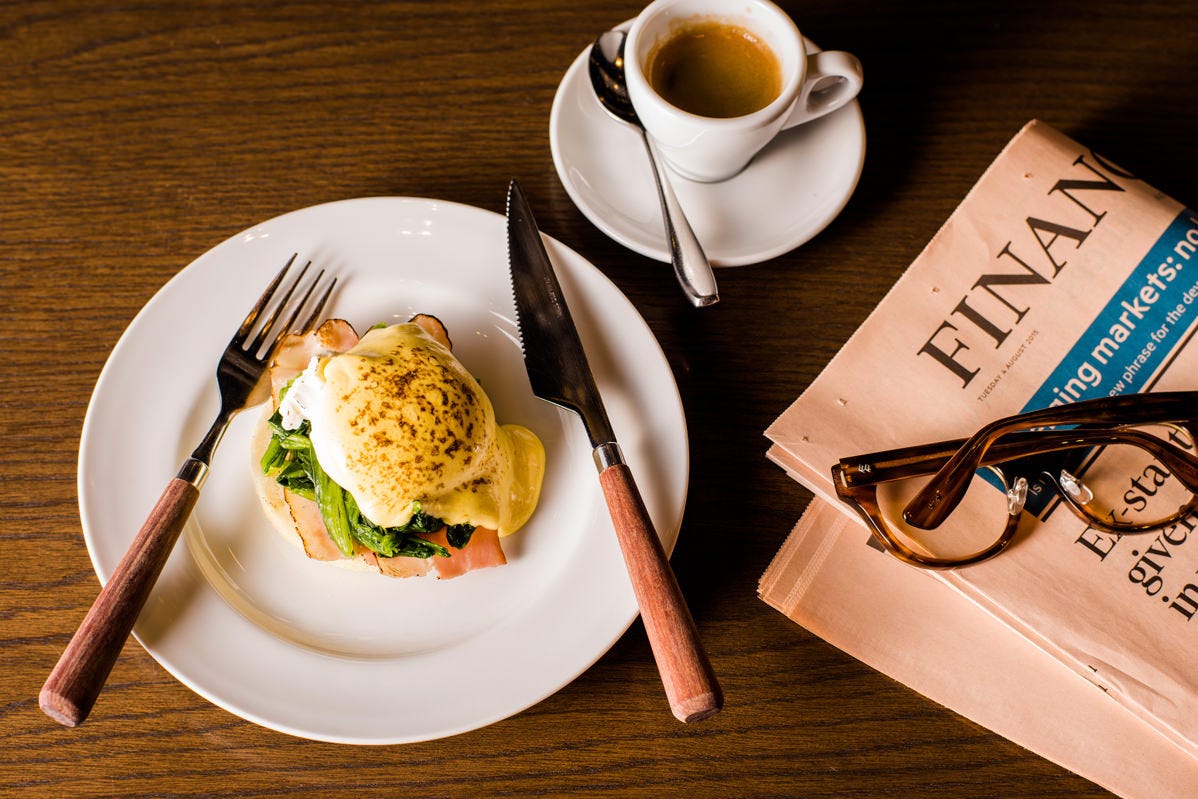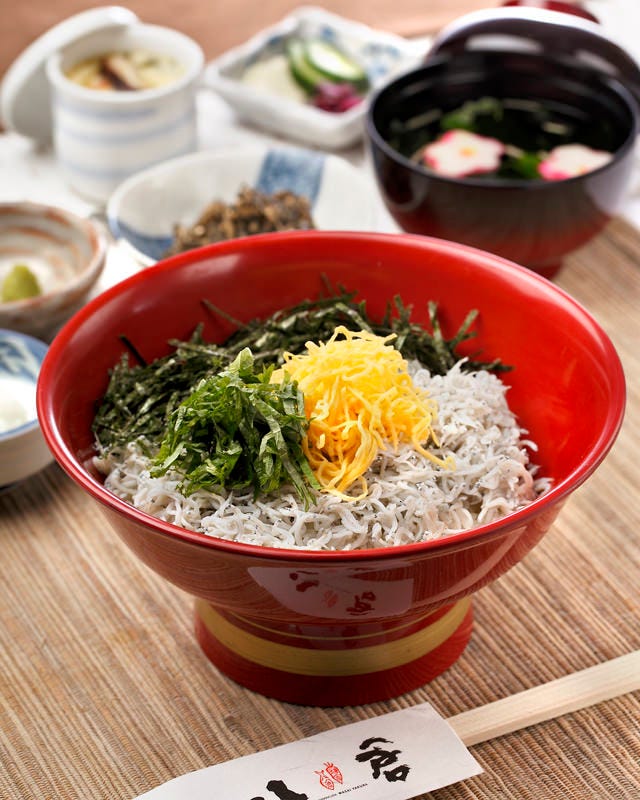
Easy Access from Tokyo! Sample Itinerary for a Day Trip to Kanagawa's Kamakura and Enoshima Areas
The Kamakura and Enoshima areas in Kanagawa can be reached in about an hour by train from Tokyo. Below is a suggested day trip itinerary that will let you fully enjoy all the famous sightseeing spots in this area, which is filled with many attractive sites.
This post may contain affiliate links. If you buy through them, we may earn a commission at no additional cost to you.
Around 6:30 am: Eat breakfast at Lavarock
First off, enjoy the morning and have breakfast before you set out on this trip. There is a dining bar located a 5-minute walk from Tokyo Station that is highly recommended - Lavarock. Here, you can enjoy the Breakfast Buffet (3,240 JPY (incl. tax)) in a spacious area with glass walls and a 6m high ceiling. Avail of this buffet and you will get to eat omelets made by the chef on the spot using ingredients from a selection of 10, as well as eggs Benedict, 12 kinds of bread made by the baker every morning, and freshly cooked waffles and pancakes, among other dishes. Foreign language menu (English) available. There are staff who can speak English.
*Approximate duration*
1 hour

Around 7:45 am: Depart from Tokyo Station
After enjoying an elegant breakfast, head to Kamakura - the first destination on this itinerary. The best way to get there is to take the JR Yokosuka Line for about an hour, on the Zushi-bound train, as you will not need to transfer.

Transit: Tokyo Station → Kamakura Station
Take the Yokosuka Line from JR Tokyo Station, ride for about 58 minutes and then get off at Kamakura Station.
9:00 am: Visit to Tsurugaoka Hachimangu
Around a 10-minute walk from Kamakura Station
When you arrive at Kamakura Station, head to the famous sightseeing spot Tsurugaoka Hachimangu to pay homage. It is a shrine that is deeply associated with Minamoto no Yoritomo (1147 - 1199), the first shogun (grand general) of the Kamakura Shogunate. In the past, worshippers visited the shrine to pray to the guardian deity of samurai warriors, but it has become a famous shrine for luck in winning and success in career in recent years.
*Approximate duration*
45 minutes

Transit: Hachimangu (or Daigakumae) Bus Stop → Jomyoji Bus Stop
Take the Keikyu Bus from Hachimangu Bus Stop, ride for about 6 minutes and get off at Jomyoji Bus Stop.
10:00 am: Stroll through the famous bamboo grove at Hokokuji Temple
Around a 3-minute walk from Jomyoji Bus Stop
Next, go to Hokokuji, a Zen temple of the Rinzai Sect that was built in 1334. It is widely known for having a beautiful bamboo grove. They say that there are about 2,000 bamboo trees, and you can explore the area while enjoying matcha green tea and Japanese sweets.
Admission fee: 200 JPY, 500 JPY for match green tea (with sweets)
*Match green tea service may be temporarily unavailable during busy times
*Approximate duration*
45 minutes


Transit: Jomyoji Bus Stop → Hachimangu Bus Stop
Take the Keikyu Bus from Jomyoji Bus Stop, ride for about 6 minutes and then get off at Hachimangu Bus Stop.
11:00 am: Walk and eat at Kamakura Komachi-dori
Within short walking distance from Hachimangu Bus Station
Next, take a walk around the approximately 360m-long Kamakura Komachi Street (Komachi-dori) that stretches from Tsurugaoka Hachimangu up to JR Kamakura Station. Both sides of the street are lined with about 250 different shops, and visitors can go shopping and walking while they enjoy a light snack. It is fun even just to walk along the street!
*Approximate duration*
1 hour

12:00 pm: Have lunch at Wasai Yakura Komachi-dori Shop
For lunch, a recommended restaurant is Wasai Yakura Komachi-dori Shop, a popular Japanese cuisine joint on Komachi Street. Their specialty is the Yakura Meibutsu Shirasu-don (1,430 JPY (incl. tax)) which uses shirasu (whitebait) caught fresh every morning at the local Koshigoe Fishing Harbor in Kamakura. Aside from its delicious taste, this popular dish is also said to be rich in calcium and DHA fatty acid, and low in calories.
*Approximate duration*
1 hour

Transit: Kamakura Station → Hase Station
Take the Enoshima Electric Railway Line from Kamakura Station, ride for about 5 minutes and get off at Hase Station
1:30 pm: Visit the Great Buddha of Kamakura at Kamakura Daibutsuden Kotoku-in
Around a 6-minute walk from Hase Station
The next stop on this trip, the Kamakura Daibutsuden Kotoku-in, is a temple of the Jodo Sect that is famous for the Kamakura no Daibutsu (Great Buddha of Kamakura). Standing at 11.31m tall, this overwhelming statue is the sole Buddha statue in Kamakura City that has been designated as a national treasure. You can enter and explore the interior of this Buddha statue.
Admission fee: General/Junior high school/Senior high school student: 200 JPY, Elementary school student: 150 JPY/Plus 20 JPY per person when entering the Buddha statue
*Approximate duration*
30 minutes

Transit: Hase Station → Kamakurakokomae Station
Take the Enoshima Electric Railway from Hase Station, ride for about 13 minutes and get off at Kamakurakokomae Station
2:30 pm: Take photos at the Kamakurakokomae railroad crossing and explore Shichirigahama Beach
Next, take a commemorative photo at the station in front of Kamakura High School, which is known for appearing in the opening scene of the globally famous animated series SLAM DUNK! The railway line here is Enoshima Dentetsu (more commonly known as Enoden), which has come to be loved as the sightseeing train in Shonan area. If you get off at the station in front of Kamakura High School, walk east for about 100m and you will get to Kamakurakokomae Ichigo Fumikiri (No.1 Railroad Crossing in front of Kamakura High School). With the blue sea of Shonan, you are bound to capture a beautiful picture. When you\'re done taking photos, it is recommended that you take a leisurely stroll along Shichirigahama Beach that spreads in front of the train station.
*Approximate duration*
30 minutes

Transit: Kamakurakokomae Station → Enoshima Station
Take the Enoshima Electric Railway from Kamakurakokomae Station, ride for about 6 minutes and get off at Enoshima Station
3:00 pm: Walk around Enoshima area
When you get to Enoshima Station, head toward Enoshima Shrine. If you walk for 20-30 minutes while looking at the sea, the Enoshima Seido Torii (bronze shrine gate), which is also called the gateway to Enoshima, will come into view. The approach leading to the shrine is lined with souvenir shops, restaurants and stores selling dried food, seaweeds and other seafood from Sagami Bay, so you can enjoy a bit of shopping.
*Approximate duration*
45 minutes


3:50 pm: Visit Enoshima Shrine
If you go a little further, you will arrive at the Enoshima Shrine, a shrine that is located in pretty much the center of Enoshima. Boasting a history of more than 1,000 years, this shrine is comprised of Hetsumiya, Nakatsumiya and Okutsumiya. Enshrined here are the deities Munakata San-joshin that protects the sea, and Benzaiten. This shrine is known to give blessings such as better luck with money, development of crafts and performance and matchmaking.
*Approximate duration*
1 hour and 20 minutes


5:30 pm: Dinner at Il chianti Enoshima while gazing at the sea
This itinerary ends with a dinner at Il chianti Enoshima, a cafe and restaurant that is found right next to the Enoshima Lighthouse. Here, you can savor original Italian cuisine with about 100 kinds of dishes available, and enjoy delicious wines while marveling at the darkening sea spreading before your eyes. Recommended at this restaurant is the Reisei! Enoshima Spaghetti (cold spaghetti) (1,380 JPY (excl. tax) for medium-size serving).
After your meal, head to Enoshima Station, which is around a 30-minute walk from there. Return to Tokyo Station via Kamakura Station. This concludes the day\'s trip.
*Approximate duration*
1 hour


Transit: Enoshima Station → Kamakura Station → Tokyo Station
Take the Enoshima Electric Railway from Enoshima Station and ride for about 23 minutes to Kamakura Station. Transfer to JR Yokosuka Line and ride for about 54 minutes to Tokyo Station.
Make sure to visit the Kamakura and Enoshima areas, where you can enjoy everything from historic sites to delicious food.
The information in this article is accurate at the time of publication.




